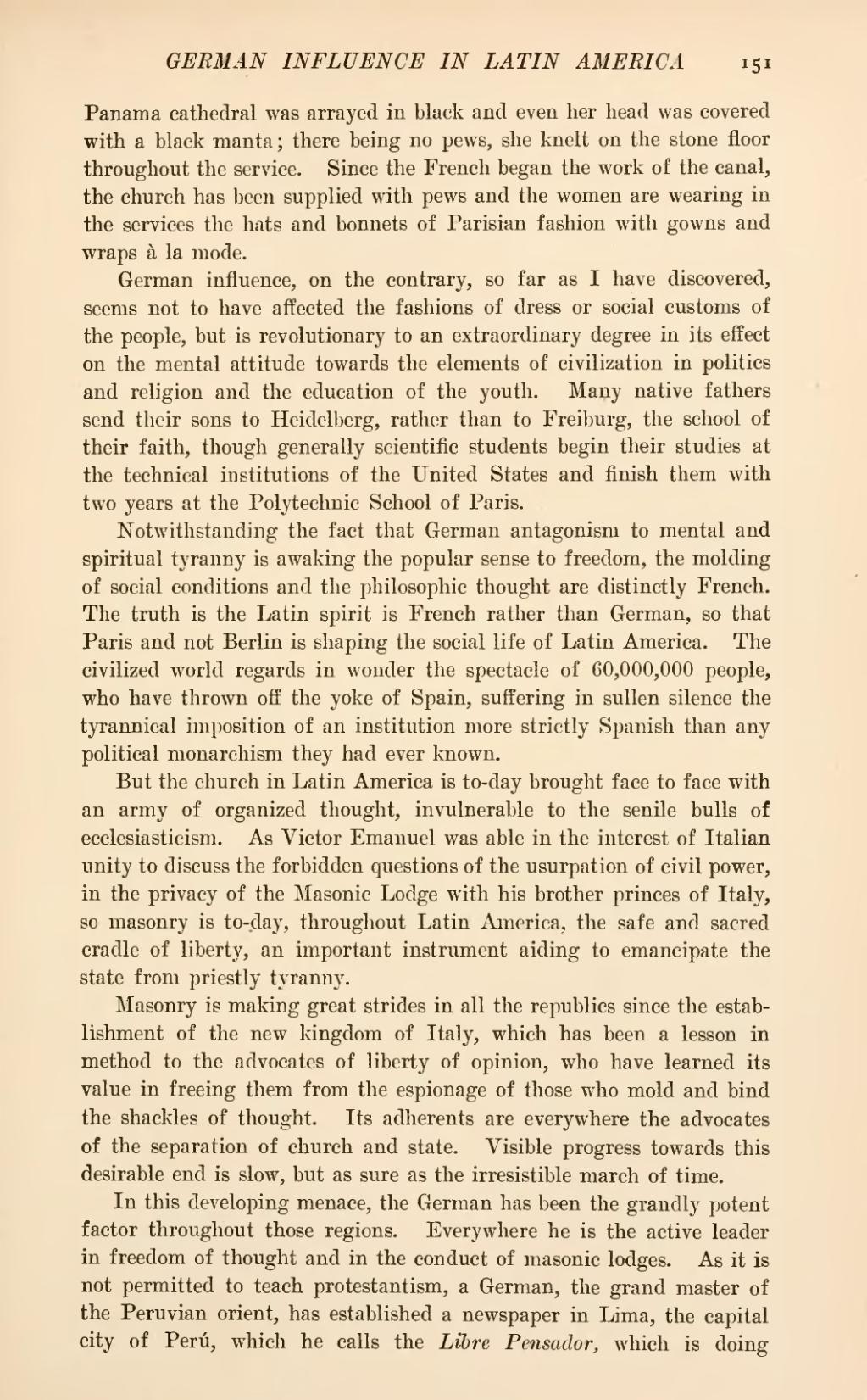Panama cathedral was arrayed in black and even her head was covered with a black manta; there being no pews, she knelt on the stone floor throughout the service. Since the French began the work of the canal, the church has been supplied with pews and the women are wearing in the services the hats and bonnets of Parisian fashion with gowns and wraps à la mode.
German influence, on the contrary, so far as I have discovered, seems not to have affected the fashions of dress or social customs of the people, but is revolutionary to an extraordinary degree in its effect on the mental attitude towards the elements of civilization in politics and religion and the education of the youth. Many native fathers send their sons to Heidelberg, rather than to Freiburg, the school of their faith, though generally scientific students begin their studies at the technical institutions of the United States and finish them with two years at the Polytechnic School of Paris.
Notwithstanding the fact that German antagonism to mental and spiritual tyranny is awaking the popular sense to freedom, the molding of social conditions and the philosophic thought are distinctly French. The truth is the Latin spirit is French rather than German, so that Paris and not Berlin is shaping the social life of Latin America. The civilized world regards in wonder the spectacle of 60,000,000 people, who have thrown off the yoke of Spain, suffering in sullen silence the tyrannical imposition of an institution more strictly Spanish than any political monarchism they had ever known.
But the church in Latin America is to-day brought face to face with an army of organized thought, invulnerable to the senile bulls of ecclesiasticism. As Victor Emanuel was able in the interest of Italian unity to discuss the forbidden questions of the usurpation of civil power, in the privacy of the Masonic Lodge with his brother princes of Italy, so masonry is to-day, throughout Latin America, the safe and sacred cradle of liberty, an important instrument aiding to emancipate the state from priestly tyranny.
Masonry is making great strides in all the republics since the establishment of the new kingdom of Italy, which has been a lesson in method to the advocates of liberty of opinion, who have learned its value in freeing them from the espionage of those who mold and bind the shackles of thought. Its adherents are everywhere the advocates of the separation of church and state. Visible progress towards this desirable end is slow, but as sure as the irresistible march of time.
In this developing menace, the German has been the grandly potent factor throughout those regions. Everywhere he is the active leader in freedom of thought and in the conduct of masonic lodges. As it is not permitted to teach protestantism, a German, the grand master of the Peruvian orient, has established a newspaper in Lima, the capital city of Perú, which he calls the Libre Pensador, which is doing
